Humans
Sign up for our newsletter
We summarize the week's scientific breakthroughs every Thursday.
-
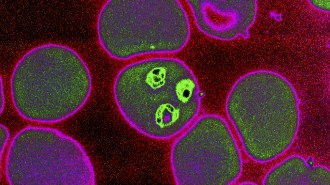 Health & Medicine
Health & MedicineA malaria vaccine with live parasites shows promise in a small trial
After taking anti-malarial drugs after each vaccine dose to clear the parasite from the body, volunteers appeared well-protected from infection.
-
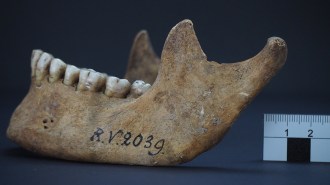 Humans
HumansAncient human bones reveal the oldest known strain of the plague
The earliest known plague strain emerged about 7,100 years ago and was less contagious as the one behind Black Death — but was still deadly.
-
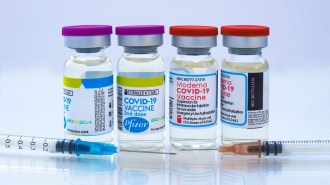 Health & Medicine
Health & MedicineHow COVID-19 vaccines were made so quickly without cutting corners
Usually it takes years to get both test results and FDA authorization, but speedy spread of the virus and eager volunteers shrunk the shots’ timeline.
By Rachel Lance -
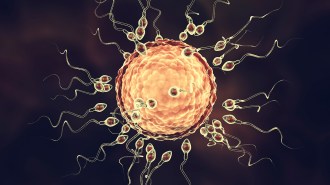 Genetics
GeneticsEmbryos appear to reverse their biological clock early in development
A new study suggests that the biological age of both mouse and human embryos resets during development.
-
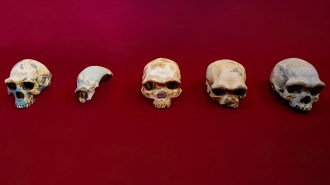 Anthropology
Anthropology‘Dragon Man’ skull may help oust Neandertals as our closest ancient relative
A Chinese fossil has been classified as a new Homo species that lived more than 146,000 years ago, but not all scientists are convinced.
By Bruce Bower -
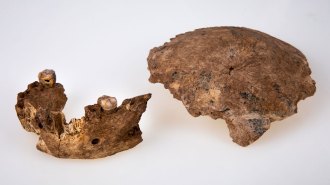 Anthropology
AnthropologyIsraeli fossil finds reveal a new hominid group, Nesher Ramla Homo
Discoveries reveal a new Stone Age population that had close ties to Homo sapiens at least 120,000 years ago, complicating the human family tree.
By Bruce Bower -
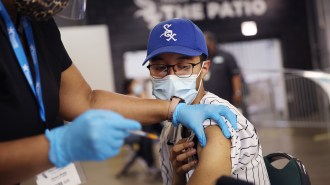 Health & Medicine
Health & MedicineThe benefits of COVID-19 mRNA vaccines outweigh the risk of rare heart inflammation
A CDC group says the benefits of the Pfizer and Moderna shots outweigh the risk of myocarditis and pericarditis in adolescents and young adults.
-
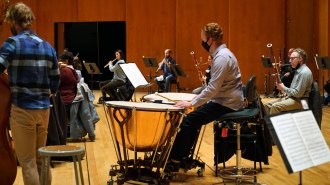 Health & Medicine
Health & MedicineHow relocating musicians can reduce COVID-19 risk at concerts
Based on simulations of how air flows across a stage, the Utah Symphony rearranged where its musicians sit and boosted ventilation.
-
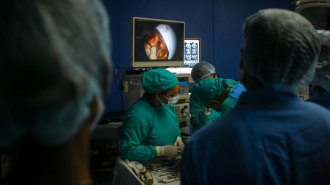 Health & Medicine
Health & MedicineHow COVID-19 created a perfect storm for a deadly fungal infection in India
Amid the chaos of the COVID-19 pandemic, numbers of rare but dangerous “black fungus” infections have skyrocketed in the country.
By Pratik Pawar -
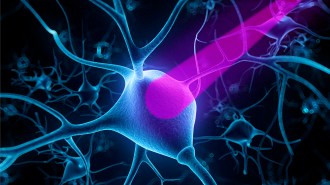 Health & Medicine
Health & MedicineControlling nerve cells with light opened new ways to study the brain
A method called optogenetics offers insights into memory, perception and addiction.
-
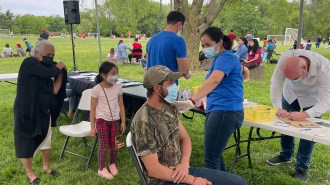 Health & Medicine
Health & MedicineHow one medical team is bringing COVID-19 vaccines to hard-to-reach Hispanic communities
Unidos Contra COVID’s Spanish-speaking volunteers go to where Philadelphia’s Hispanic people gather, giving shots and addressing concerns one-on-one.
-
 Science & Society
Science & SocietyMoral judgments about an activity’s COVID-19 risk can lead people astray
People use values and beliefs as a shortcut to determine how risky an activity is during the pandemic. Those biases can lead people astray.
By Sujata Gupta